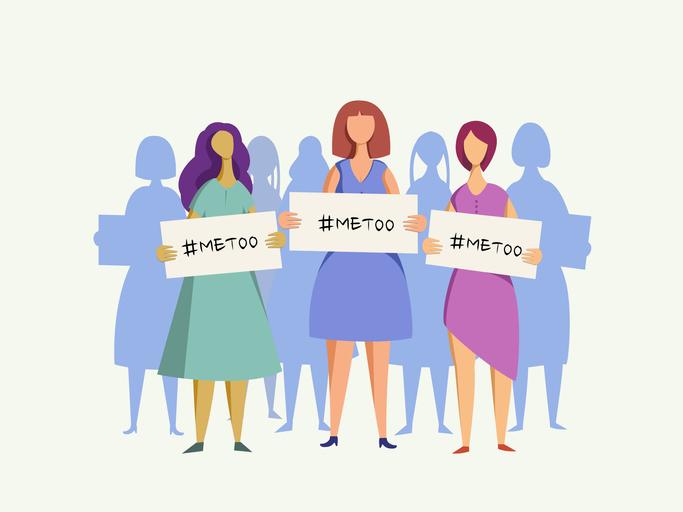
How to choose an app that will encourage reporting of sexual violence on campus
Responsible technology can enhance university responses to gender-based violence reports. Here, Heather Flowe and Laura Stevens share what to look for and demand when choosing an app or platform

You may also like
In recent years, universities have been paying increased attention to sexual misconduct on campus. Many institutions have turned to mobile apps and online reporting platforms to provide a pathway for capturing incidents and supporting students and staff. While these tools hold great promise, our research highlights that many need better security and documentation features. Through our in-depth analysis of platforms that are in use around the globe, we offer six key recommendations for universities adopting these tools.
1. Prioritise survivor safety and confidentiality
Exposing sensitive information, such as personal details or the nature of the incident, can be devastating to the individuals involved, leading to further trauma and a sense of betrayal. We found in our research that many platforms have limited security features, potentially compromising users’ safety. Furthermore, some tools do not provide information about how to use the app nor state how the organisation will use their data or include an informed consent procedure. Institutions should vet potential partners and vendors thoroughly and require them to provide detailed information about their data security measures, including encryption methods, access controls and data retention policies. These practices should be evaluated against the most rigorous standards for protecting survivor privacy.
- Addressing sexual misconduct in higher education, part one: prevention
- Gender equality is more than a box-ticking exercise – let’s champion it
- Eight ways to improve responses to sexual misconduct in universities
While anonymous reporting poses challenges for investigations and for supporting survivors in the aftermath of an incident, it is crucial for encouraging people to come forward. Research shows that loss of anonymity and confidentiality can deter people, especially those from marginalised communities, from reporting incidents. Survivors may fear negative social judgement or that the perpetrator will retaliate. Allowing users to come forward anonymously or confidentially empowers survivors to speak out.
2. Ensure equitable access and use trauma-informed language
Technology that is hard to use or that is inaccessible to some users is a barrier to reporting. Universities should look for tools that incorporate features such as text-to-speech, adjustable text sizes and high-contrast viewing modes, which were rare in the tools we evaluated. It is also important that the platform uses plain language that’s sensitive to the impacts of trauma and avoids the use of legal or medical jargon that can come across as alienating or victim blaming. Every aspect of the platform and process should convey a genuine commitment to inclusivity and compassion.
3. Establish diverse advisory groups to support accountability and risk mitigation
In our work with survivors’ organisations, we’ve seen the value of bringing in diverse stakeholder perspectives. Universities should establish advisory groups made up of students, academic staff, and survivors and their advocates, as well as other topic experts. These stakeholders can provide valuable guidance on platform design, help spot potential issues early on and make sure the system is responsive to changing user needs. Regularly seeking input from people with different experiences is key to anticipating unintended consequences and figuring out how to avoid them. Advisory boards also play a vital role in promoting transparency and building trust with the campus community.
4. Include contingency planning for data preservation and ongoing user support
The tech start-up world can be unpredictable, and systems developed via researchers and non-profits can disappear when the funding runs out. Institutions should require comprehensive plans from vendors for protecting and transferring sensitive data if the company goes under. Working with university legal advisers and law enforcement is essential in thinking through potential issues around data discoverability in legal contexts. Tackling these scenarios head-on is a must for living up to promises of survivor care and making sure crucial evidence isn’t lost forever.
5. Capture survivor statements verbatim
Open-ended questions let people share authentically, in their own words. This protects against the risk of an account being distorted by another party. Systems must also prevent survivors seeing each other’s reports. Reading similar accounts might seem comforting, but it can seriously undermine survivor credibility. We know from our research that any hint of blurred lines can suggest to legal officials and juries that the survivor’s memory of the incident has been contaminated by other sources. Universities must safeguard the integrity of each person’s individual truth. Every voice deserves to be heard, untainted, so the focus stays on accountability and justice.
6. Invest time and energy in understanding people’s concerns and experiences
It is essential to conduct regular surveys on perceptions of campus safety and barriers to reporting. Collecting this data before and after rolling out a new reporting system creates a baseline for measuring impact and figuring out how to make it work better for everyone. University leadership should also seek out evaluations and listen to survivors and advocates, making sure the platform is meeting people’s needs. Building that continuous dialogue establishes trust and accountability when it comes to preventing and responding to sexual violence.
We desperately need innovative solutions to address the problem of sexual violence at universities. Technology offers exciting possibilities for empowering survivors and shedding light on systemic failures. But universities can’t just throw an app at the problem and hope for the best. Designing and implementing reporting platforms requires careful consideration of the ethical and evidentiary challenges involved. It’s a weighty responsibility with high stakes for survivors and the integrity of the academic community.
Our research underscores just how critical it is for universities to approach this task with the utmost care and commitment. By prioritising survivor safety, ensuring equitable access, bringing in robust oversight, planning for all possible scenarios, committing to continuous improvement and centring the needs of diverse students and staff, institutions can tap into the potential of technology to drive meaningful change. This demands responsible stewardship, a fierce dedication to survivor-centred values and a willingness to keep listening, learning and adapting. With the right intentions and tools, sexual misconduct reporting tools on campus can be a powerful ally in the pursuit of protection, healing and justice.
Heather D. Flowe is professor of psychology and Laura M. Stevens is a final-year PhD student, both at the University of Birmingham.
If you would like advice and insight from academics and university staff delivered direct to your inbox each week, sign up for the Campus newsletter.


